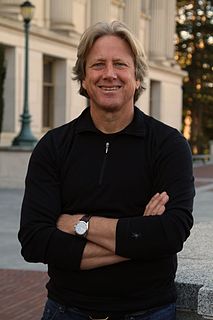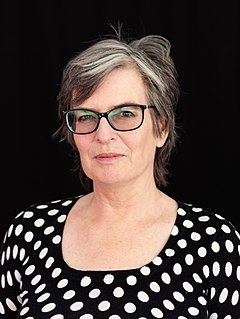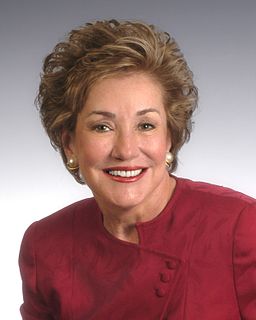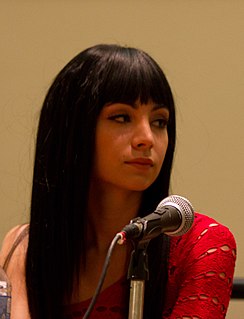A Quote by Jeffrey Pfeffer
Those who have power a) understand that the world is not always a just and fair place and accept that fact, b) understand the bases and strategies for acquiring power, and c) take actions consistent with their knowledge in a skillful way. Skill at anything requires practice, and power skills are no different.
Related Quotes
Whether it comes from a despotic sovereign or an elected president, from a murderous general or a beloved leader, I see power as an inhuman and hateful phenomen. To the same degree that I do not understand power, I do understand those who oppose power, who criticize power, who contest power, especially those who rebel against power imposed by brutality.
You are already leaders. Your ideas, your actions and your decisions make a difference. More than any other generation, you have a voice. Social networking is changing how we interact - and it can change our world. You are in touch with peers from around the world. You understand the power of instant communication. I appeal to you to use that power for the common good, the power of communication and the power of networking.
The power paradox is that we gain power by advancing the welfare of other people and yet when we feel powerful, it turns us into impulsive sociopaths and we lose those very skills. If you're in the military, you gain power by forging strong ties in your comrades. And then the irony is that once we feel powerful and we are taken with our own success, we ignore the skills that got us power in the first place.
We should not be content to say that power has a need for such-and-such a discovery, such-and-such a form of knowledge, but we should add that the exercise of power itself creates and causes to emerge new objects of knowledge and accumulates new bodies of information. ... The exercise of power perpetually creates knowledge and, conversely, knowledge constantly induces effects of power. ... It is not possible for power to be exercised without knowledge, it is impossible for knowledge not to engender power.
What is the cause of historical events? Power. What is power? Power is the sum total of wills transferred to one person. On what condition are the willso fo the masses transferred to one person? On condition that the person express the will of the whole people. That is, power is power. That is, power is a word the meaning of which we do not understand.
Power is not a matter of one dominant individual or institutions, but instead manifests in interconnected, contradictory sites where regimes of knowledge and practice circulate and take hold. This way of understanding the dispersion of power helps us realize that power is not simply about certain individuals being targeted for death or exclusion by a ruler, but instead about the creation of norms that distribute vulnerability and security.
We Indians do not teach that there is only one god. We know that everything has power, including the most inanimate, inconsequential things. Stones have power. A blade of grass has power. Trees and clouds and all our relatives in the insect and animal world have power. We believe we must respect that power by acknowledging it's presence. By honoring the power of the spirits in that way, it becomes our power as well. It protects us.
To resort to power one need not be violent, and to speak to conscience one need not be meek. The most effective action both resorts to power and engages conscience. Nonviolent actions does not have to get others to be nice. It can in effect force them to consult their consciences. Nor does it have to petition those in power to do something about a situation. It can face the authorities with a new fact and say: Accept this new situation which we have created.
If you understand real practice, then archery or other activities can be zen. If you don't understand how to practice archery in its true sense, then even though you practice very hard, what you acquire is just technique. It won't help you through and through. Perhaps you can hit the mark without trying, but without a bow and arrow you cannot do anything. If you understand the point of practice, then even without a bow and arrow the archery will help you. How you get that kind of power or ability is only through right practice.
[On power:] Some people really have almost a disdain for that word. They feel it is alien to conscience. Power for power's sake, no. But the positive use of power for positive purposes is very important. You have to understand that. You've got to have a seat at the policy table if you want to make a difference.


































